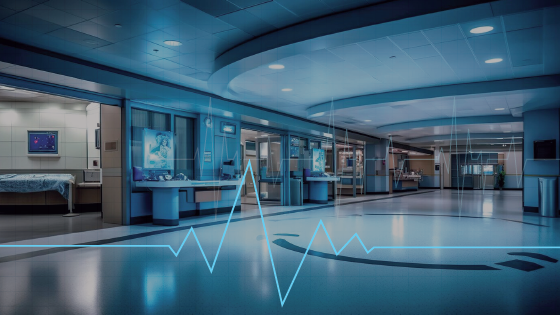22 June 2023
In recent years, the fusion of technology and food has given rise to a fascinating field known as Food Tech. One of the most promising aspects of this realm is the integration of Artificial Intelligence (AI) and Machine Learning (ML) into various processes within the food industry. From enhancing the quality and safety of food to revolutionising personalised nutrition, AI and ML have become the secret ingredients that are transforming the way we produce, distribute, and enjoy our meals.

Improving Food Safety
Ensuring food safety is of paramount importance for both consumers and producers. AI and ML are being employed to streamline processes and minimise the risk of contamination or spoilage. With the help of intelligent algorithms, machines can analyse vast amounts of data, such as temperature, humidity, and shelf life, to accurately predict the freshness of perishable goods. This enables early detection of potential issues and prompt action to be taken, reducing food waste and ensuring that only safe products reach the market.

Enhanced Quality Control
Maintaining consistent quality in food production can be a complex task. AI and ML are stepping in to automate and optimise quality control processes. Computer vision systems powered by ML algorithms can inspect and analyse food items in real-time, detecting defects, blemishes, or deviations from standards. This level of precision helps manufacturers identify problematic batches early on, ensuring that only products meeting the desired quality criteria make it to the shelves.

Personalised Nutrition
The concept of personalised nutrition—tailoring dietary recommendations to an individual’s unique needs—is gaining significant traction. AI and ML play a vital role in this domain by analysing vast amounts of data, including genetic information, medical history, and dietary habits, to provide personalised dietary advice. By leveraging this technology, individuals can receive tailored meal plans and recommendations based on their specific goals, such as weight management, athletic performance, or health conditions. This approach empowers individuals to make informed choices and optimise their overall well-being through nutrition.

Intelligent Food Ordering and Delivery
The rise of food delivery platforms has revolutionised the way we order and enjoy meals. AI and ML algorithms are being utilised to enhance the efficiency of food delivery logistics. By analysing historical data, weather conditions, and traffic patterns, these algorithms can optimise delivery routes and accurately estimate delivery times. Additionally, AI-powered chatbots and virtual assistants are improving the ordering experience by understanding and predicting customer preferences, making personalised suggestions, and providing seamless customer support.

Sustainable Food Production
With growing concern for environmental sustainability, the food industry is under pressure to reduce its ecological footprint. AI and ML techniques are being employed to optimise agricultural practices, reduce water usage, and minimise the use of pesticides and fertilisers. Smart farming systems equipped with sensors and AI algorithms can monitor plant health, soil conditions, and weather patterns, enabling farmers to make data-driven decisions for optimal crop yield. This approach not only helps conserve resources but also contributes to the production of healthier and more nutritious food.

Conclusion
The integration of AI and ML into the food industry is revolutionising how we produce, distribute, and consume our meals. From enhancing food safety and quality control to enabling personalised nutrition and sustainable food production, these technologies are paving the way for a more efficient, secure, and eco-friendly food ecosystem. As we move forward, it is essential to harness the power of AI and ML responsibly, ensuring that ethical considerations and human expertise continue to guide their implementation. The future of Food technology looks promising, and with continued advancements, we can expect a tastier and healthier world on our plates.









